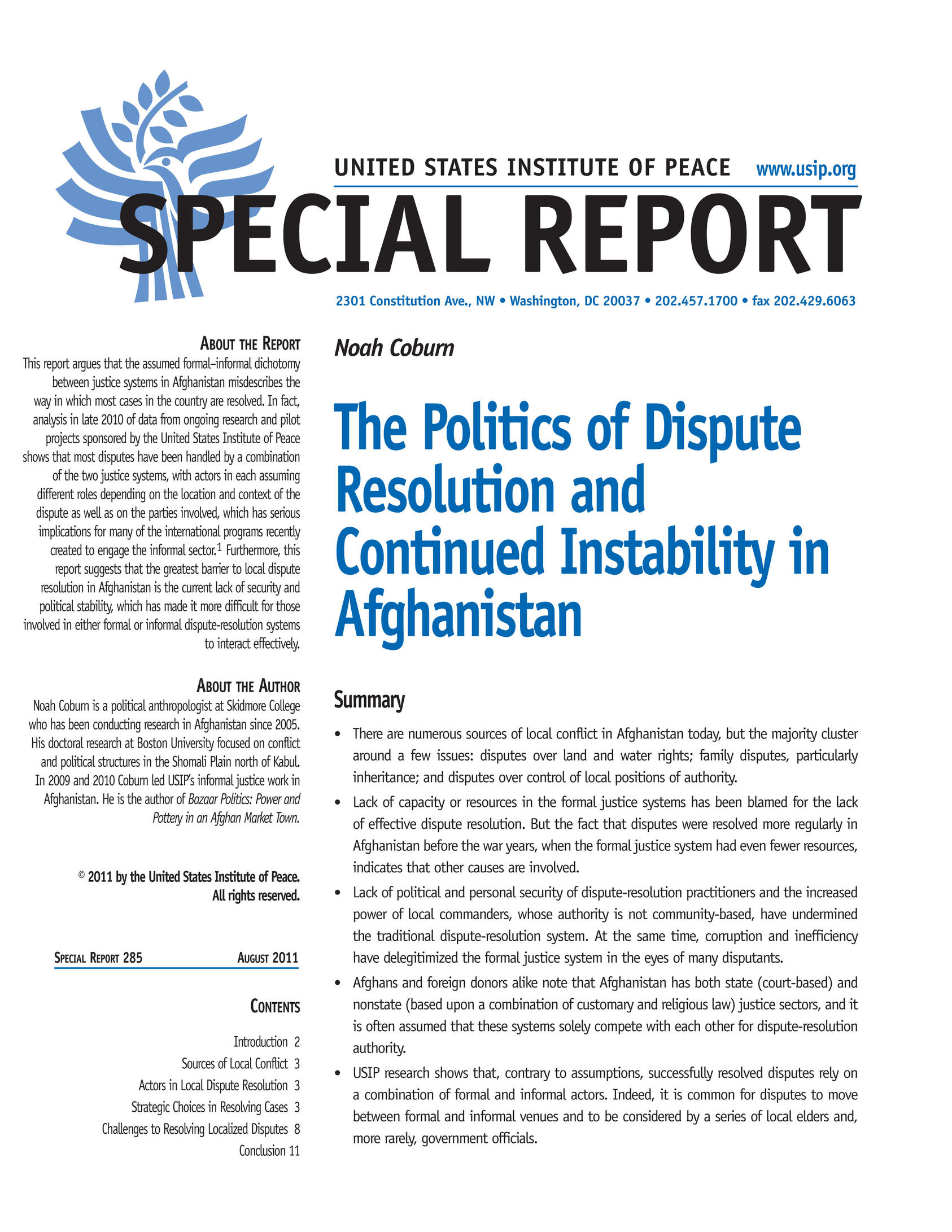The Politics of Dispute Resolution and Continued Instability in Afghanistan
In this Special Report Noah Coburn analyzes findings from USIP's in-country research projects on dispute resolution in Afghanistan. The report argues that the lines between formal and informal justice systems in Afghanistan are blurred and that this has major implications for international programs engaging the informal sector, and ultimately concludes that lack of security and political stablity are the greatest challenges to dispute resolution.

Summary
- There are numerous sources of local conflict in Afghanistan today, but the majority cluster around a few issues: disputes over land and water rights; family disputes, particularly inheritance; and disputes over control of local positions of authority.
- Lack of capacity or resources in the formal justice systems has been blamed for the lack of effective dispute resolution. But the fact that disputes were resolved more regularly in Afghanistan before the war years, when the formal justice system had even fewer resources, indicates that other causes are involved.
- Lack of political and personal security of dispute-resolution practitioners and the increased power of local commanders, whose authority is not community-based, have undermined the traditional dispute-resolution system. At the same time, corruption and inefficiency have delegitimized the formal justice system in the eyes of many disputants.
- Afghans and foreign donors alike note that Afghanistan has both state (court-based) and nonstate (based upon a combination of customary and religious law) justice sectors, and it is often assumed that these systems solely compete with each other for dispute-resolution authority.
- USIP research shows that, contrary to assumptions, successfully resolved disputes rely on a combination of formal and informal actors. Indeed, it is common for disputes to move between formal and informal venues and to be considered by a series of local elders and, more rarely, government officials.
About the Report
This report argues that the assumed formal–informal dichotomy between justice systems in Afghanistan misdescribes the way in which most cases in the country are resolved. In fact, analysis in late 2010 of data from ongoing research and pilot projects sponsored by the United States Institute of Peace shows that most disputes have been handled by a combination of the two justice systems, with actors in each assuming different roles depending on the location and context of the dispute as well as on the parties involved, which has serious implications for many of the international programs recently created to engage the informal sector.1 Furthermore, this report suggests that the greatest barrier to local dispute resolution in Afghanistan is the current lack of security and political stability, which has made it more difficult for those involved in either formal or informal dispute-resolution systems to interact effectively.
About the Author
Noah Coburn is a political anthropologist at Skidmore College who has been conducting research in Afghanistan since 2005. His doctoral research at Boston University focused on conflict and political structures in the Shomali Plain north of Kabul. In 2009 and 2010 Coburn led USIP’s informal justice work in Afghanistan. He is the author of Bazaar Politics: Power and Pottery in an Afghan Market Town.



